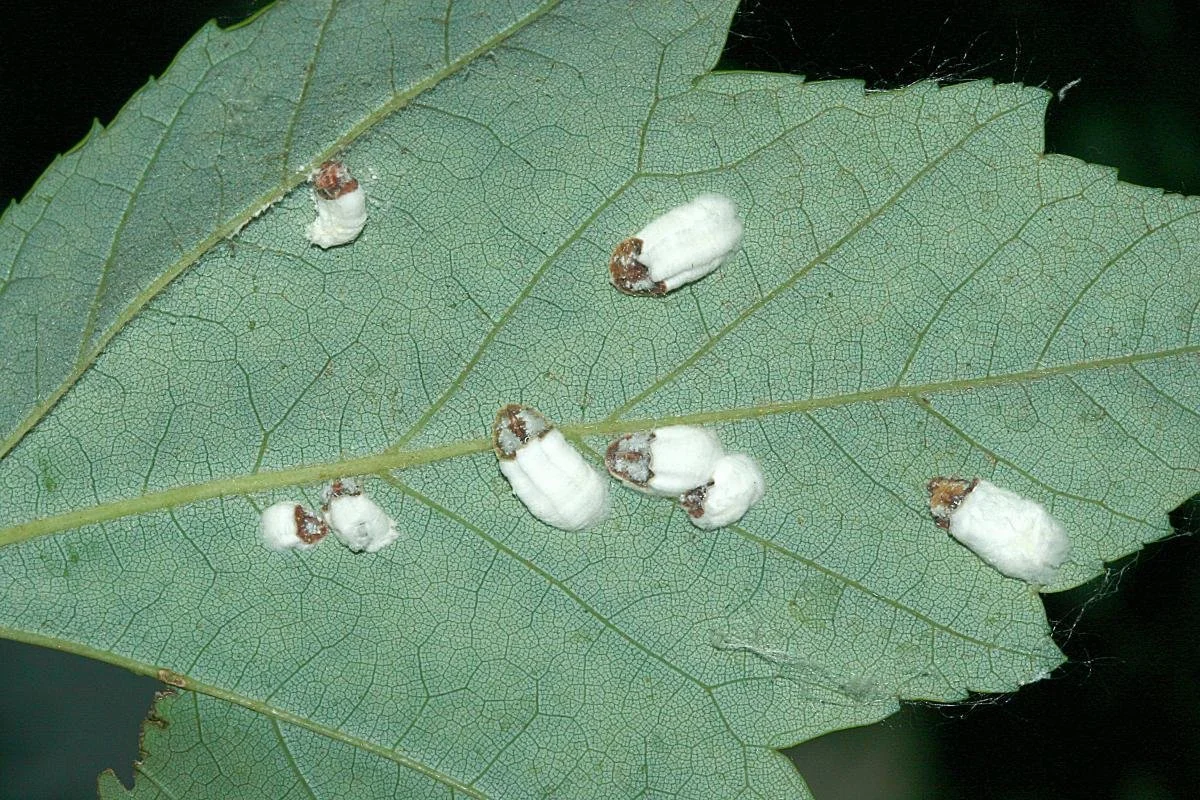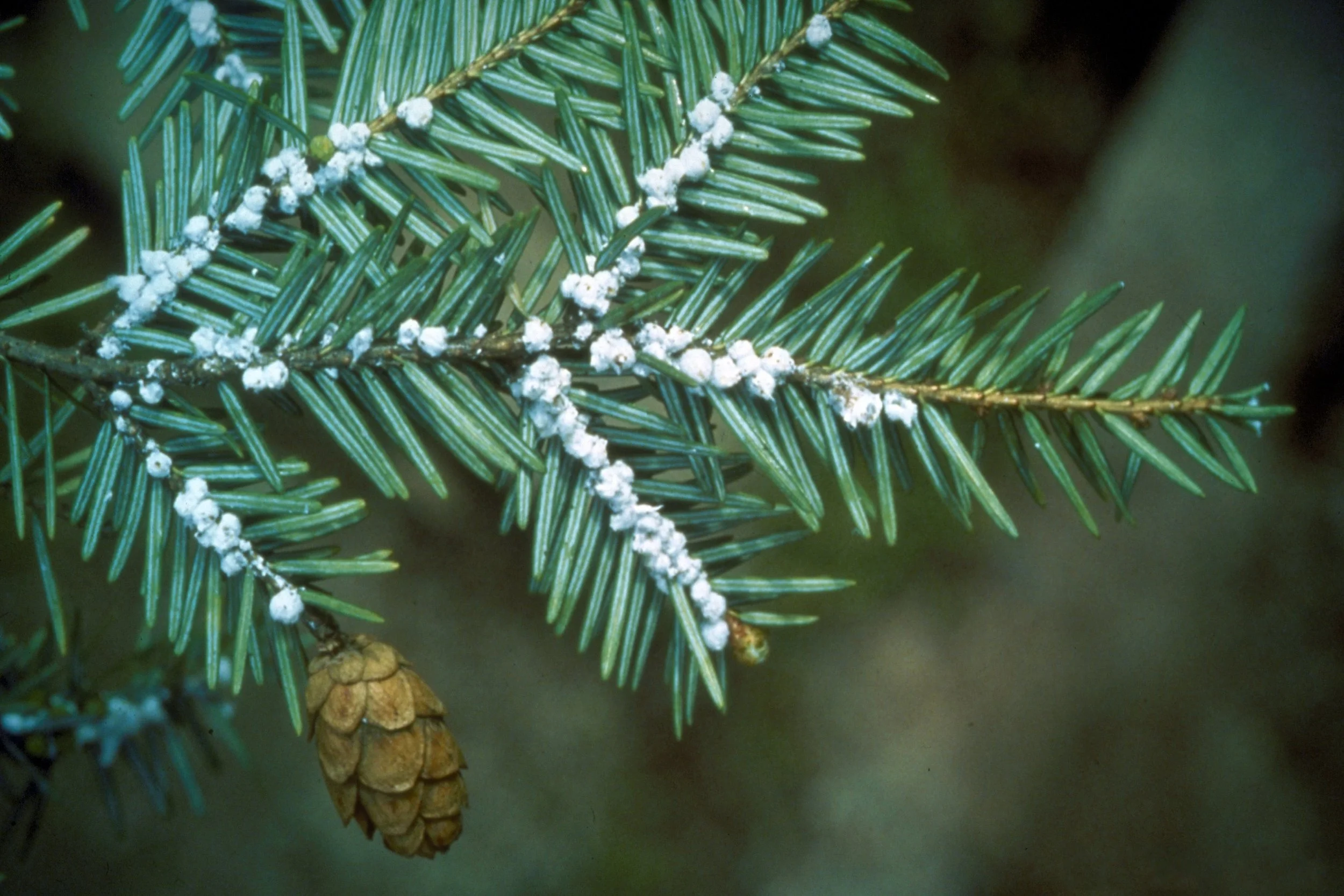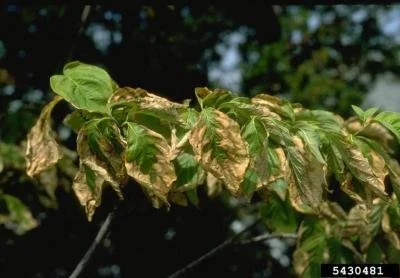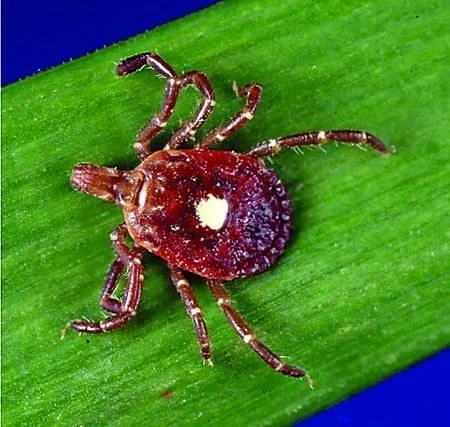Summer Stressors: Have You Seen These Plant Problems?
"If you have a garden and a library, you have everything you need."
-Cicero
Summer Season Plant Pests and Problems
Our expert land care professionals are in the field every day, inspecting and treating tree and shrub issues all over Long Island. Here are some widespread concerns we've noticed, maybe you've seen some in your own backyard.
Cottony Scale
found on these plants and more:
cherry
viburnum
maple
hydrangea
holly
linden
yew
This insect is highly noticeable on a variety of plants. It looks white and puffy, usually with a little yellow/brown spot like an egg yolk. It can be treated with our insecticidal soap application but if left untreated, it spreads rapidly and causes early leaf-drop.
Woolly Adelgid
This insect feeds on the needles of hemlock, causing needles to brown and drop. It's been an issue on Long Island for decades but this year the conditions are just right for a big showing. It can be treated with our horticultural oil program but also spreads rapidly if left untreated.
Bagworm
found on these plants and more:
arborvitae
cedar
juniper
This insect forms a "bag" around itself while defoliating your arborvitae hedge and others. These bags look similar to small pinecones but if you look closely, they are wiggling as they feed. You may even see the worms pop their heads out to feed. Bagworm infestations are heavy this year, with bags spreading to nearby plants that are not commonly host to the pests. Our bagworm treatments can help save your trees from this dangerous pest.
Environmental Stress
Winter burn, summer drought, overwatering, compaction... there are always environmental conditions that factor into the stressed state of trees and shrubs. In the summer and winter these stresses become most obvious and show up as browning/yellowing leaves, leafdrop, poor growth, to name a few. Our compost tea fertilization can help restore soil and plants to healthy conditions.
Lone Star Tick
Long Islanders are familiar with tick troubles but this year has been one of the worst. Deer and Dog ticks have been the most common until last year when the Lone Star Tick population surpassed the others. While the other ticks tend to sit and wait for prey, known as "questing", the Lone Star is also know to actively hunt. They are faster and more aggressive and although they don't carry Lyme Disease, they are a vector for several other dangerous diseases.
If you don't already have an active organic tick control program with us, don't hesitate to contact us today. If you already have regular tick sprays, you may need to add more applications than in previous years. We now offer more frequent treatment as well as an additional tick product called Tick Plus to boost efficacy of your already active program.
Contact us today for a free estimate.




